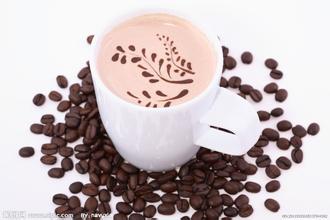Coffee common sense coffee health manual for men and women

On a cold winter day, there is no drink more refreshing than a cup of fragrant and strong coffee. This season's cafes are always full of party friends; Starbucks has countless petty bourgeoisie with laptops; and in the supermarket and in front of vending machines, there are always people who pick up a bottle of canned coffee. In short, every day, all kinds of people are waiting for the same cup of good coffee.
Why are we so obsessed with coffee? In addition to refreshing and refreshing effects, the innate cultural temperament of coffee is also a magic that attracts us. Some people say, "you can smell the original aroma of coffee inspiration from the works of coffee-loving writers and artists." For hundreds of years, coffee has been changing history with the most silent tenderness.
When it comes to history, we have to mention the great writer Balzac, some people say: "it is drinking coffee that Balzac has written so many masterpieces." But others say: "Balzac can contribute more and better works to the world if he doesn't drink coffee too much." Is coffee a healthy drink that is good for our body and mind, or is it the culprit that harms our health? The medical profession has been studying and exploring. In this issue, we will invite experts to give you some advice.
They have nothing to do with coffee.
1. Patients with high blood pressure: coffee contains caffeine, which can raise blood pressure in some sensitive patients.
two。 Patients with renal failure: if patients with renal failure have the phenomenon of hyperkalemia, they need to cooperate with a limited potassium diet, and coffee with high potassium content should not be drunk.
3. Patients with peptic ulcer: caffeine stimulates gastric acid secretion and relaxes the smooth muscle vessels of the digestive system, accelerating food metabolism and reducing the nutritional value of food.
4. Patients with diabetes: caffeine can reduce insulin secretion in the pancreas, reduce glucose tolerance, increase insulin excretion and increase blood sugar.
5. Patients with epilepsy: caffeine can stimulate the brain power center, xanthine will constrict blood vessels and reduce blood flow to the brain. It is very disadvantageous to patients with epilepsy.
6. Heart disease patients: coffee will increase the content of fat and triglycerides, increase the burden of the heart and oxygen consumption. Especially when the body is tired and excessive smoking is more likely to cause side effects.
7. Patients with iron deficiency anemia: coffee accelerates food metabolism and reduces iron absorption.
8. Kidney stone patients: to prevent the recurrence of calcium oxalate stones, it is necessary to abstain from foods rich in oxalic acid. Coffee is a food rich in oxalic acid.
9. Insomniacs: long-term drinking coffee will affect the sedative effect, increase the number of wakefulness, and make the sleep depth shallower.
10. In addition to the above several diseases patients can not drink coffee, healthy people may not be suitable for drinking coffee, such as pregnant women, breast-feeding women: caffeine will affect the fetus's nutrient and oxygen intake, so pregnant women had better not drink caffeinated drinks. If you drink coffee during lactation, irritants such as caffeine will enter the baby's body through breast milk, resulting in adverse effects on the baby's growth and development, so do not drink coffee three months after delivery.
Athletes drinking coffee can also produce discomfort or pathological phenomena.
Important Notice :
前街咖啡 FrontStreet Coffee has moved to new addredd:
FrontStreet Coffee Address: 315,Donghua East Road,GuangZhou
Tel:020 38364473
- Prev

Basic knowledge of Coffee and healthy Coffee drinking
Today, not only is the global market of the coffee industry changing, but also the concept of health contained in coffee culture has been spread more widely. For a long time, people have known that coffee can be refreshing, so drinking coffee has become popular all over the world as a way of life. Recently, American scientists have found that in addition to being refreshing, coffee contains high levels of polyphenols (Pol).
- Next

Coffee Health Handbook for Men and Women misunderstanding of drinking Coffee
In the past, people thought that caffeine can promote the function of liver and kidney, so drinking coffee after drinking alcohol can promote the acidification of alcohol into acetaldehyde, decompose it into sulfur dioxide and water, and help to sober up. But recent studies have found that drinking coffee after drinking alcohol can induce high blood pressure. Some people are used to sober up by ordering a cup of coffee after drinking. Little do you realize that good wine and coffee
Related
- Beginners will see the "Coffee pull flower" guide!
- What is the difference between ice blog purified milk and ordinary milk coffee?
- Why is the Philippines the largest producer of crops in Liberia?
- For coffee extraction, should the fine powder be retained?
- How does extracted espresso fill pressed powder? How much strength does it take to press the powder?
- How to make jasmine cold extract coffee? Is the jasmine + latte good?
- Will this little toy really make the coffee taste better? How does Lily Drip affect coffee extraction?
- Will the action of slapping the filter cup also affect coffee extraction?
- What's the difference between powder-to-water ratio and powder-to-liquid ratio?
- What is the Ethiopian local species? What does it have to do with Heirloom native species?

